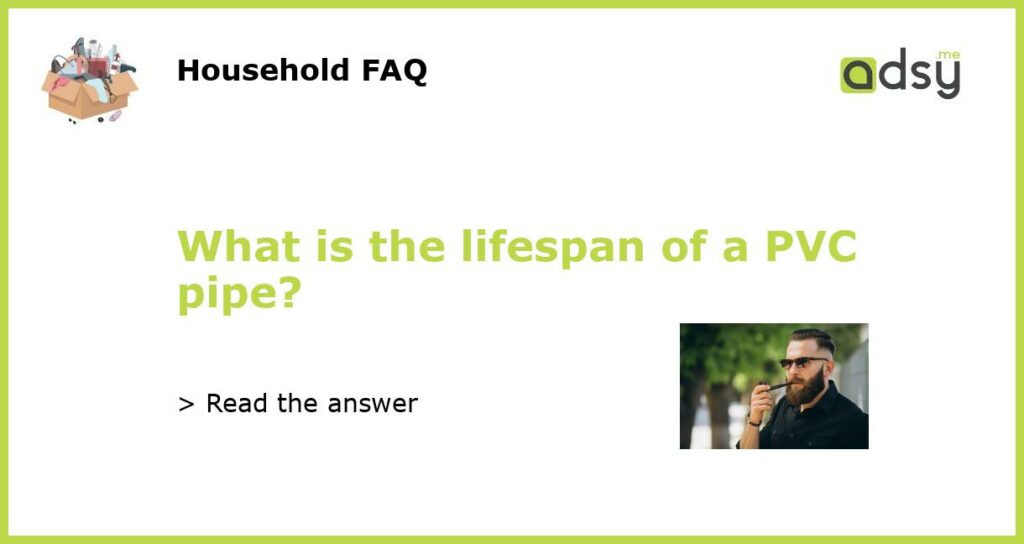PVC pipes are a popular choice for water distribution systems, sewage systems, and other applications because of their affordability, durability, and versatility. But how long can you expect a PVC pipe to last? There are several factors that can affect the lifespan of a PVC pipe, which we will explore in this article.
The Lifespan of a PVC Pipe
Generally, PVC pipes can last for decades without any major issues. According to the Uni-Bell PVC Pipe Association, most PVC pipes have a lifespan of 50-100 years. However, this can vary depending on a number of factors, including:
Factors That Affect PVC Pipe Lifespan
1. Exposure to UV radiation. PVC pipes that are exposed to direct sunlight can break down over time. This can cause them to become brittle, which can lead to cracks and leaks. To prevent this, PVC pipes should be buried underground or covered with insulation.
2. Chemical exposure. PVC pipes are resistant to many chemicals, but they can be damaged by certain substances. For instance, prolonged exposure to chlorine or other strong oxidants can cause PVC pipes to degrade over time. PVC pipes should be tested for chemical resistance before being installed in industrial or chemical processing applications.
3. Heavy traffic. PVC pipes that are installed under heavy traffic areas can be damaged by the weight of vehicles or foot traffic. This can cause cracks or other damage that can shorten the lifespan of the pipe.
4. Installation errors. Improper installation can also affect the lifespan of PVC pipes. For instance, pipes that are not buried deep enough can be damaged by freezing temperatures or heavy equipment. Pipes that are not properly supported can also become misaligned or break under pressure.
Prolonging the Lifespan of PVC Pipes
To ensure the longest lifespan for your PVC pipes, there are several steps you can take:
1. Install pipes correctly. Make sure that your pipes are installed at the correct depth and supported properly. Use the right tools and materials for the job.
2. Protect pipes from direct sunlight. Cover your pipes with insulation or bury them underground to protect them from UV radiation.
3. Test pipes for chemical resistance. If you are using PVC pipes in an industrial or chemical processing application, make sure to test them for chemical resistance before installation.
4. Replace pipes when necessary. If you notice signs of damage or degradation in your PVC pipes, such as leaks or cracks, it may be time to replace them.
PVC pipes are a durable and versatile choice for a variety of applications. While their lifespan can vary depending on a number of factors, proper installation and maintenance can help prolong the life of your PVC pipes. If you have concerns about the lifespan of your PVC pipes, consult a professional plumber or engineer.






